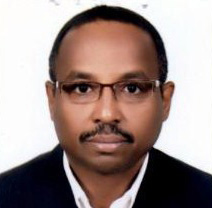

1:00 am AST - 2:30 am AST
Past Event
Content from the Brookings Doha Center is now archived. In September 2021, after 14 years of impactful partnership, Brookings and the Brookings Doha Center announced that they were ending their affiliation. The Brookings Doha Center is now the Middle East Council on Global Affairs, a separate public policy institution based in Qatar.
The Brookings Doha Center hosted a policy dialogue on May 9, 2018 to discuss challenges and prospects for Yemen. The discussion focused on the current humanitarian and political situation in the country, as well as ideas on how to end the tragic war. The panel included Baraa Shiban, Middle East and North Africa caseworker at the UK-based human rights organization, Reprieve; Elobaid Elobaid, a representative from the Office of the United Nations High Commissioner for Human Rights; and Elisabeth Kendall, senior research fellow in Arabic and Islamic studies at Pembroke College, Oxford University. The panel was moderated by Noha Aboueldahab, visiting fellow at the Brookings Doha Center. Members of Doha’s diplomatic, academic, and media communities attended the event.
Aboueldhab opened the discussion by giving context about Yemen’s war and the dire humanitarian situation. Thousands have been killed and millions displaced, starved, and disappeared in what the United Nations has called the world’s worst humanitarian crisis since World War II. The Houthi takeover of Sanaa in September 2014 and the ensuing military intervention of the Saudi-led coalition of states in March 2015 are only a part of the puzzle, which features a complex web of domestic, regional, and international actors. Multiple investigations into war crimes have implicated all parties in the conflict.
Baraa Shiban argued that one of the main challenges for Yemen, similar to other countries in the Arab region, remains the lack of a framework for political transition. After the 2011 uprisings, the lack of strong political institutions and leadership led to widespread upheaval. Even though the Yemeni regime was based on patronage, and power revolved around a specific and small group of people working with the late Ali Abdullah Salah, Yemen has a history of some political participation and civil society. The 2011 protests presented a ripe opportunity for change in the country, but the fundamental issue lay in the lack of a sustainable political transition.
Shiban discussed the GCC-led process of national dialogue; the need for a transition from a centralized government to a federal system; the importance of a transitional justice process; and finally, the necessity of military and security reconstruction. Shiban claimed that the momentum of the national dialogue shifted with the Houthi takeover of Sanaa in 2014 and the heightened role played by external actors such as Saudi Arabia and Iran. The grievances and regional divides between the north and south in Yemen have been exploited by outside actors, which became more actively involved as war broke out in 2015.
Elobaid Elobaid centered his comments on the grim human rights situation in Yemen. U.N.-led investigations have found a host of crimes that violate international law, including airstrikes and indiscriminate shelling on civilians and their use as human shields; the recruitment and training of child soldiers; the destruction of infrastructure such as civilian dwellings, hospitals, schools, and heritage sites; sexual violence; forced displacement; mass arrests; the targeting of minorities; as well as violations to economic, social, and cultural rights. He emphasized that the closure of the airport also represents a serious issue as it seals access to the outside in the north. Overall, there is a grave shortage of goods and a huge risk of widespread famine. The alarming intensification of conflict and the increasing number of airstrikes from both the Houthis and the Saudi-led coalition are threatening the lives of more civilians than ever.
Elisabeth Kendall shifted the dialogue to some of the more structural aspects of the war in Yemen: the empowerment of groups like al-Qaida in the Arabian Peninsula(AQAP) and the Islamic State (ISIS), particularly in the east. She unpacked how AQAP resurged when the coalition started bombing in March 2015 and essentially ran a state for an entire year, until the UAE pushed them out with U.S. support in April 2016. She argued that while ISIS never really took-off in Yemen, AQAP used community development to gain popularity amid Saudi-led coalition airstrikes. AQAP focused on local problems and local history, which worked well for them during their time in charge. In contrast, ISIS had some popularity in 2014, but they couldn’t form alliances with eastern tribes, so they dwindled quickly. She argued that groups didn’t trust ISIS because it was considered too violent, too foreign, and not in touch with local issues.
Kendall also described how the eastern region is significant because it is an entry point for smuggling that includes illicit weaponry, drugs, and refugees. She posited that smuggling has actually been allowed to flourish in eastern Yemen with the support of AQAP and in collaboration with local government authorities. For her, there are ultimately three major issues in eastern Yemen: smuggling and organized crime; international players like Saudi Arabia, UAE, and Oman; and separatist movements.
The Q&A focused on problems associated with the national dialogue, the potential for transitional justice, the effectiveness of counter-terrorism policies, and the impact of the Saudi-Iran rivalry on the dynamics of the war. Shiban argued that while the national dialogue needs to incorporate more voices, it is far more inclusive than any other process in the past; the central issue remains in the distribution of wealth and power. Elobaid maintained that any future negotiations and political reconciliation must address accountability. Ultimately, his work focuses on human rights violations with the hope that, in the long term, the information can be utilized to hold war criminals accountable.
For her part, Kendall noted that the counter-terrorism strategy in Yemen was working to a certain extent given the fact that AQAP is on the run, and ISIS has no base. However, it is important to better understand how AQAP addresses local problems and thus gains influence and acceptance. She also contended that the use of torture, secret prisons, and assassinations by actors such as the UAE does not help in the long-term because it builds up resentments that terrorists can exploit. The event ended with more details on what federalism in Yemen may look like, and the negative impacts of the Saudi-Iran proxy war. The new UN envoy to Yemen is trying to reignite peace talks in yet another attempt to end the tragic war.



Noha Aboueldahab
August 23, 2021

August 23, 2021

Yasmina Abouzzohour
August 19, 2021